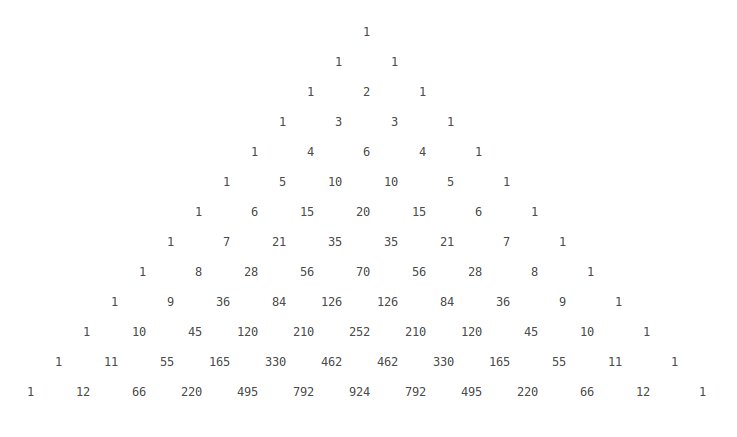How do you use the binomial theorem to calculate #1.01^5# ?
1 Answer
Explanation:
By the binomial theorem, in general we have:
#(a+b)^n = sum_(k=0)^n ((n),(k)) a^(n-k) b^k#
where
The binomial coefficient
#1, 5, 10, 10, 5, 1#

So we find:
#1.01^5 = (1+0.01)^5#
#color(white)(1.01^5) = 1+5(0.01)+10(0.01)^2+10(0.01)^3+5(0.01)^4+(0.01)^5#
#color(white)(1.01^5) = 1.0510100501#
Footnote
Note that for small powers
Just calculate
#1.01^4 = color(red)(1).color(green)(04)color(blue)(06)color(purple)(04)color(brown)(01)#

